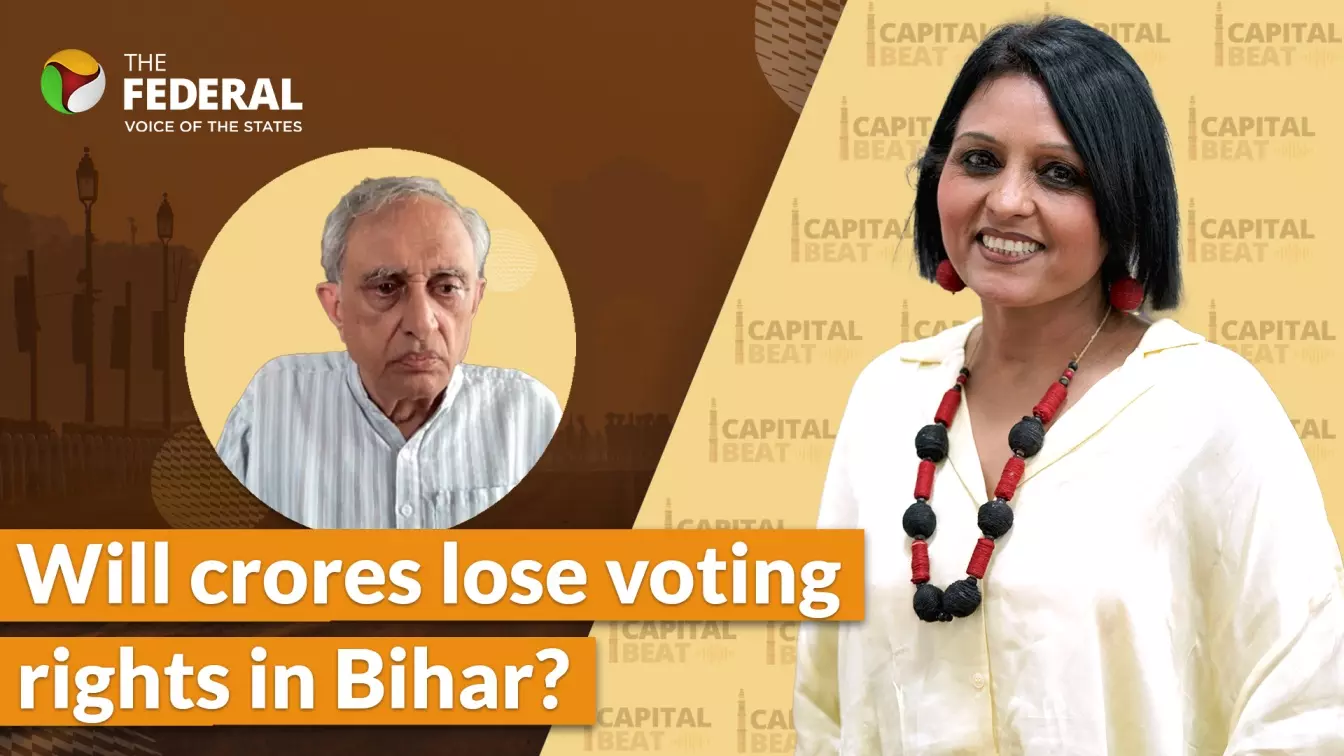
Former GOI secretary EAS Sarma interview
Bihar poll revision drive: Voter rights in danger, says ex-bureaucrat | Capital Beat
Former GOI secretary EAS Sarma slams EC’s voter list revision in Bihar — is democracy at risk?

The Election Commission’s special intensive revision of electoral rolls in Bihar has sparked widespread concern, with critics warning of potential mass voter exclusion. Former Government of India secretary EAS Sarma has written to the Election Commission expressing serious reservations about the process. In this Capital Beat interview, Sarma explains why the exercise could have grave consequences for democracy.
You’ve termed the current electoral roll revision in Bihar as exclusionary. What makes you say this?
In my letter, I cited data based on a study by Rahul Shastri, published by The Wire. The Election Commission’s guidelines mention documents like birth certificates, PSU or government job IDs, and forest rights certificates — but not Aadhaar or ration cards, which most people possess.
Also read | What led to INDIA bloc showdown with EC over Bihar electoral roll update?
For example, less than 3% of people have birth certificates. Government or PSU IDs? Maybe 2% at best, given how small the government workforce is today. Forest rights certificates? In Bihar, only 191 have been issued, despite the large tribal population. How can these be the basis for voter verification?
Why do you believe Aadhaar and ration cards should have been included?
Aadhaar is linked to most essential services — Jan Dhan accounts, LPG connections, and more. In Bihar, 87.5% of people have Aadhaar cards. Ration cards are even more universal. Migrant workers I’ve met often say they go back to Bihar to vote because their ration cards are there. These are robust documents.
By excluding them, the commission is making it unnecessarily hard for genuine voters. It’s not intensive verification; it’s extensive exclusion.
The Election Commission says this exercise is necessary because urbanisation has created many “unwanted voters.” What’s your take?
That’s just not acceptable logic. Instead of focusing on cleaning up rolls through local verification — as KJ Rao did in Bihar years ago — they’ve created a document-heavy process that will exclude the poor, Scheduled Castes, Scheduled Tribes, OBCs, and minorities.
If someone is a genuine voter, give them choices. Let them use Aadhaar, ration cards, or other reliable documents. The current approach seems designed to identify “foreigners” rather than voters. That’s not the Election Commission’s job.
Does the Election Commission even have the mandate to verify citizenship?
No. The commission should verify if someone is eligible to vote, not conduct a citizenship check. Aadhaar was already issued after verifying these details. The commission is overstepping and creating chaos. People are protesting because they can’t get birth certificates or other documents suddenly demanded of them.
Why do you think the Election Commission is being so indifferent to the concerns raised?
Perhaps it’s because its members are selected by a process dominated by the executive, making people wonder about its independence. But if I were in their place, I’d go out of my way to show impartiality. Instead, when concerns are raised, the commission dismisses them as attempts to erode its credibility. But in truth, ignoring these concerns damages the commission’s credibility far more.
Also read | Discussion: EC's Bihar voter revision sparks disenfranchisement fears
Where do you see this process heading if nothing changes?
It’s going to result in massive exclusion, especially of Scheduled Castes, Scheduled Tribes, OBCs, minorities, and people in backward regions with low literacy. You’ll be creating a large class of second-tier citizens who can’t vote and will face harassment, possibly even being branded as foreigners.
Excluding crores of genuine voters undermines the very foundation of our democracy.
Do you believe the courts should step in?
Yes. This is so serious that the higher judiciary should take suo motu cognisance. Sadly, that hasn’t happened yet. I hope someone moves court. Even if they don’t, I’d appeal to the courts to act because this threatens the rights of millions.
(The content above has been generated using a fine-tuned AI model. To ensure accuracy, quality, and editorial integrity, we employ a Human-In-The-Loop (HITL) process. While AI assists in creating the initial draft, our experienced editorial team carefully reviews, edits, and refines the content before publication. At The Federal, we combine the efficiency of AI with the expertise of human editors to deliver reliable and insightful journalism.)

